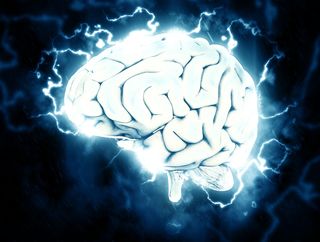Depression
Don't Say That Depression Is Caused by a Chemical Imbalance
The most popular way of talking about mental illness may be misguided.
Posted August 9, 2018 Reviewed by Matt Huston

Many people believe that mental illness is caused by a chemical imbalance in the brain, with one survey finding that about 80 percent believe that depression is due to some sort of chemical imbalance.
While the true causes of mental illness are likely much more complex, some have advocated for talking about mental illness this way to reduce stigma. If we talk about mental illness as if it were a “brain disease” and refer primarily to its biological causes, then people would be less likely to believe that mental illness is caused by a weakness of character. Mental illness would not be the fault of an individual, but rather, their biology.
However, this well-intentioned way of framing mental illness can backfire. One study found that talking about mental illness as if it were a brain disease and due to purely biological causes, rather than something that is due to psychosocial causes like childhood trauma, can lead people to treat those who suffer from mental illness more harshly. This may be because the “brain disease” framing conveys that people who have mental illness are physically distinct, which can lead to a sense of othering. If someone is perceived as having different biology than us, it might be harder to have empathy for them because we do not see them as like us.
This framing may also be damaging for the people suffering from mental illnesses, making them think it is unlikely that they will recover. One study found that when people were told their depression was caused by a chemical imbalance, they showed more pessimism about recovering. The “chemical imbalance” framing tacitly suggests that mental illness is permanent – “wired” into someone’s brain, instead of something that can potentially improve through treatment.
Researchers at the University of Melbourne conducted a meta-analysis of 25 different studies that looked at the impact of the “brain disease” framing of mental illness. They concluded that this framing is a mixed blessing: While some studies showed that this way of framing mental illness leads to a decreased sense of blame, many also showed that it leads to a stronger desire for social distance and an increased perception that people with mental illness are dangerous.
What are some better ways to talk about mental illness? One study found that talking about how biology is malleable and interacts with the environment led those with mental illness to have less pessimism about recovery. Another study found that talking about how there is a continuum between mental health and mental illness, rather than a strict dichotomy, decreases perceptions that people with mental illness are different and leads to greater social acceptance. And a meta-analysis of several studies found that some of the best tactics to reduce stigma against those with mental illness involve increasing contact with those who are suffering from mental illness and dispelling common misconceptions about having a mental illness.
Yet, the “brain disease” frame is still central to the way we talk about mental illness. Even the term “mental illness” evokes notions of physical illness, which raises the question: is even the word “illness” an issue when we talk about mental illness? Can we re-think the way we talk about mental illness, avoiding terms like “illness” and “disorder?”
Some people think we can. It has become increasingly common to refer to mental illnesses, as well as developmental disorders such as autism spectrum disorder and ADHD, as examples of “neurodiversity.” The term neurodiversity initially rose to prominence in online groups of autistic individuals, and is often strongly associated with autism spectrum disorder. However, it has since grown to become a way of describing a range of mental illnesses and developmental disorders, such as dyslexia, ADHD, depression, bipolar disorder, schizophrenia, and more.
The basic tenets of neurodiversity are that there is no “normal” human brain, that there are differences, not disorders, and that there are, in many cases, positive aspects to having a variety of brains that function differently. Advocates for neurodiversity commonly draw parallels with homosexuality, which was previously described as a disorder by the American Psychological Association until 1973, but is now viewed by many as a part of normal human variation.
The idea of neurodiversity is not without its critics. Some have suggested that it may commodify and romanticize difference, while ignoring the suffering of those who are not high-functioning and do not have exceptional talents that come with their neurodivergence. Others have accused it of being anti-treatment and anti-cure.
There is little research about the effectiveness of this framing. However, early research is promising: one study found that those who know about neurodiversity tend to view autism as more of a positive identity. No research, to my knowledge, has looked at this framing in the context of mental illnesses like depression or anxiety. So, while there’s not yet enough evidence to make any strong claims about whether the “neurodiversity” frame works, it is a valiant effort to try to reframe the all-too-common and harmful tendency to talk about mental illness as if it were a “brain disease.”
As a wide body of psychological literature indicates, words matter, and the words we choose to use can powerfully influence how people think. If we choose the right words to frame difference, we can help fight stigma and potentially make the world more accommodating for the neurodiversity that exists within and all around us.




